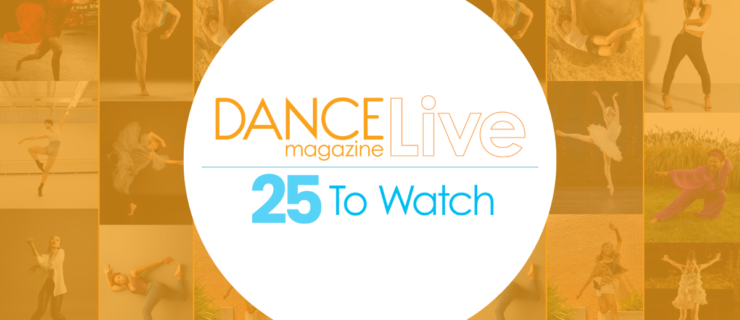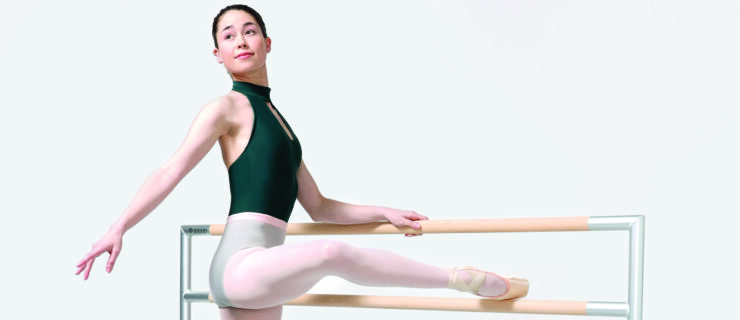Confidence Check

(iStock)
Confidence plays a major role in how you carry yourself on and off the dance floor. Do you hold your head high even when things get a little rough? Or are you prone to self-esteem slumps? Take our quiz to find out.
1. You’re out to dinner with friends after a performance and the server brings you the wrong order. What do you do?
[a] Eat it anyway
[b] Politely let the server know about the mistake
[c] Roll your eyes and loudly demand the correct order
2. You weren’t accepted into your dream summer program this year. How do you feel?
[a] Devastated—like you’ll never be good enough to reach your goals
[b] Disappointed, but glad you tried. You’ll ask your teacherwhat you should work on for next year’s audition.
[c] Indifferent. You’re probably too good for that program anyway.
3. You finally landed a triple pirouette, but instead of praising
you, your teacher says your relevé could still be higher. How do you react?
[a] By trying to hide your tears of frustration
[b] By nodding your understanding and applying the correction
[c] By ignoring the correction. Those turns were perfect!
4. Your best friend
asks to borrow
your favorite leotard—the one you want to wear today. What do you say?
[a] “Sure!” You’re afraid she’ll be mad if you say no.
[b] “I planned to wear it today, but you can borrow it next week!”
[c] “No way!” She won’t look as good as you do in it anyway.
5. If you make a mistake during
rehearsal, what do you say to yourself?
[a] “I’m dumb. I’ll never get it right.”
[b] “That was a silly mistake, but I can do better next time.”
[c] “It wasn’t my fault! Everyone else was wrong.”
6. Your dance teacher suggests
you need to improve your leaps. What’s your plan of action?
[a] Work on them on your own. You don’t want to waste your teacher’s time.
[b] Schedule a private lesson with your teacher exclusively for practicing jumps
[c] Focus on your turns instead. Your leaps are awesome!
7. How do you feel when you take class from a new and unfamiliar teacher?
[a] Nervous and uncomfortable
[b] Curious and excited to learn
[c] Determined to show off your skills from front row, center
8. Your studio is holding auditions for a special solo in this year’s recital. Will you audition?
[a] Probably not. You don’t feel strong enough to perform a solo.
[b] Why not? It never hurts to try!
[c] Yes—but secretly you feel like you shouldn’t even have to try
out. That solo is yours!
9. What do you do if you’re having difficulty picking up a combination?
[a] Keep quiet and try not to draw attention to yourself
[b] Raise your hand and ask your teacher to demonstrate more slowly
[c] Add a little improv to your trouble spots. It’ll make it more fun, anyway.
HOW’D YOU SCORE?
If you answered mostly A’s,
your low self-esteem is probably interfering with your life—and your dancing. According to Dr. Linda Hamilton, wellness consultant for New York City Ballet, “Dancers who lack self-confidence feel uncomfortable expressing their opinions in front of others. They feel anxious asking for help.” As a result, you may feel frustrated and downtrodden.
How can you give your confidence a boost? Pay attention to how you talk to yourself. “Follow the ‘best friend rule,’ ” Hamilton advises. “If you wouldn’t say it to your best friend, don’t say it to yourself!” And try not to sweat the small stuff. One wobbly pirouette doesn’t make you a bad dancer. Even the pros make mistakes!
If you answered mostly B’s,
you’re a confidence queen! You may struggle with feelings of self-doubt, but you’re usually able to keep them in perspective. When you reach a roadblock, you take a deep breath and figure out a new route. “With healthy self-confidence, you can adjust your goals,” Hamilton says. “You may think, ‘Even if I don’t make it in a ballet company, I can still dance.’ For example, you might change your focus to theater dance.” Strong self-esteem won’t fix all your problems, but the ability to persevere and stay positive in the face of challenges can have a lasting impact on your overall health and happiness. Keep it up!
If you answered mostly C’s,
it might be time for a reality check. An inability to accept constructive criticism or recognize your areas of weakness isn’t doing you any favors. A cocky attitude can slow—or even halt—your improvement and earn you a less-than-stellar reputation. But is your overconfidence just a mask for low self-esteem? “Dancers with grandiose attitudes may actually be overcompensating,” says Hamilton. “They may not have much confidence at all.”
How can you stay realistic about your abilities? “Go to a teacher for feedback,” says Hamilton. A good dance teacher can help you identify your strengths and weaknesses. You can feel good about yourself and be confident without acting like a total diva!

(iStock)




